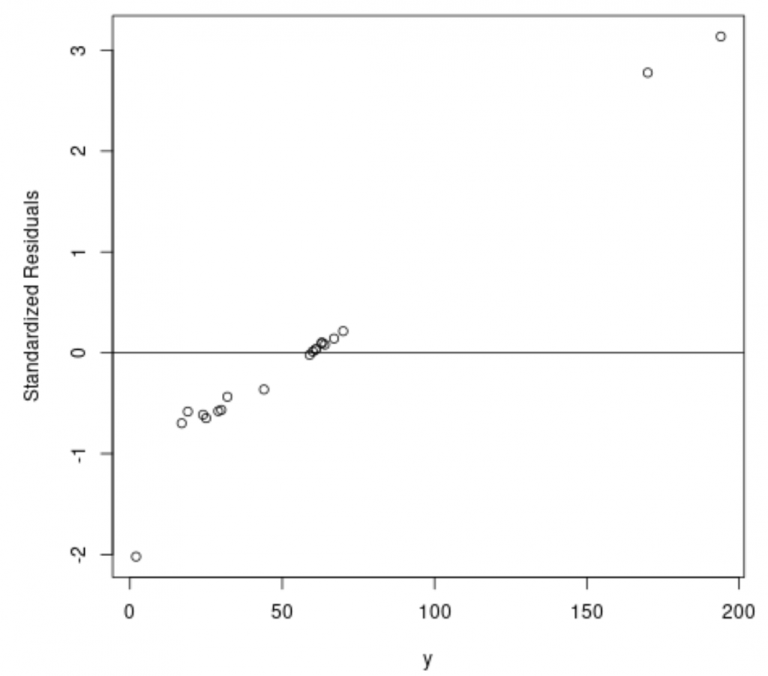What Is Robust Regression In R? Easy Implementation

Robust regression is a type of regression analysis that is designed to be more resistant to the influence of outliers and other extreme data points than traditional regression methods. In traditional regression, outliers can have a significant impact on the results, leading to biased estimates of the regression coefficients and poor predictive performance. Robust regression, on the other hand, uses alternative methods to estimate the regression coefficients that are less sensitive to outliers.
Why Use Robust Regression?
There are several reasons why you might want to use robust regression:
- Outliers: Robust regression is useful when you have outliers in your data, which can affect the accuracy of traditional regression methods.
- Non-normality: Robust regression can handle non-normal data, which can be a problem for traditional regression methods that assume normality.
- Robustness to model misspecification: Robust regression can provide more accurate results than traditional regression when the model is misspecified.
Types of Robust Regression
There are several types of robust regression, including:
- Least Absolute Deviation (LAD) regression: This method uses the median instead of the mean to estimate the regression coefficients.
- Least Trimmed Squares (LTS) regression: This method trims a proportion of the data points with the largest residuals before estimating the regression coefficients.
- MM-estimation: This method uses a combination of robust regression methods to estimate the regression coefficients.
Implementing Robust Regression in R
R provides several packages for implementing robust regression, including the robustbase package, which provides a range of robust regression methods. Here is an example of how to use the lmrob function from the robustbase package to implement robust regression:
# Install the robustbase package
install.packages("robustbase")
# Load the robustbase package
library(robustbase)
# Generate some sample data
set.seed(123)
x <- rnorm(100)
y <- 2 + 3 * x + rnorm(100)
# Add some outliers to the data
x[1:10] <- x[1:10] + 10
y[1:10] <- y[1:10] + 10
# Fit a traditional linear regression model
lm_model <- lm(y ~ x)
summary(lm_model)
# Fit a robust linear regression model
robust_model <- lmrob(y ~ x)
summary(robust_model)
In this example, we first generate some sample data and add some outliers to the data. We then fit a traditional linear regression model using the lm function and a robust linear regression model using the lmrob function from the robustbase package. The summary function is used to print a summary of each model.
Interpreting the Results
The results from the summary function will include the estimated regression coefficients, standard errors, t-statistics, and p-values for each model. The robust regression model will be less affected by the outliers in the data, resulting in more accurate estimates of the regression coefficients.
Comparison of Traditional and Robust Regression
Here is a comparison of the traditional and robust regression models:
# Plot the data
plot(x, y)
# Add the traditional regression line
abline(lm_model, col = "red")
# Add the robust regression line
abline(robust_model$coefficients[1], robust_model$coefficients[2], col = "blue")
In this plot, the red line represents the traditional regression line and the blue line represents the robust regression line. The robust regression line is less affected by the outliers in the data, resulting in a more accurate representation of the relationship between the variables.
Conclusion
Robust regression is a type of regression analysis that is designed to be more resistant to the influence of outliers and other extreme data points than traditional regression methods. The robustbase package in R provides several robust regression methods, including the lmrob function, which can be used to implement robust linear regression. By using robust regression, you can obtain more accurate estimates of the regression coefficients and improve the predictive performance of your model.
FAQ Section
What is robust regression?
+Robust regression is a type of regression analysis that is designed to be more resistant to the influence of outliers and other extreme data points than traditional regression methods.
Why use robust regression?
+Robust regression is useful when you have outliers in your data, which can affect the accuracy of traditional regression methods. It can also handle non-normal data and provide more accurate results than traditional regression when the model is misspecified.
How do I implement robust regression in R?
+You can implement robust regression in R using the robustbase package, which provides several robust regression methods, including the lmrob function.


